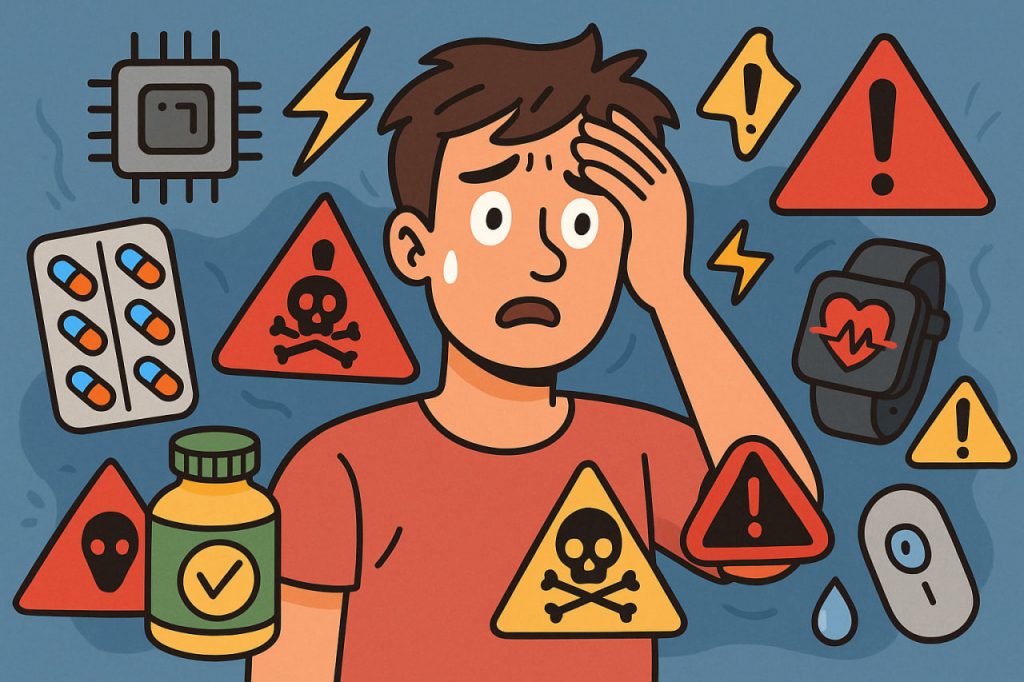Biohacking is a modern trend that involves using various methods, from nutrition and supplements to technology and genetic experiments, to improve the body’s performance, health, or even extend life. Its supporters often call it “DIY biology,” as people attempt to take control of their own biology through self-experiments. While some mild forms of biohacking, like improving diet or sleep, can be beneficial, extreme practices carry significant risks.
Forms of Biohacking
- Lifestyle biohacking – includes optimizing sleep, diet, exercise, and stress management. These practices are generally safe and beneficial if based on scientific evidence.
- Nutritional biohacking – involves the use of supplements, special diets, or fasting methods to enhance energy and brain function.
- Technological biohacking – includes the use of wearable devices, implants, or nootropics (substances that claim to boost cognition).
- Genetic biohacking – the most controversial, involving attempts to alter DNA or use untested therapies without professional supervision.
Potential Benefits
Some elements of biohacking overlap with healthy habits, such as balanced nutrition, regular exercise, meditation, and good sleep. These can genuinely improve health and well-being. However, problems arise when individuals push beyond safe limits or experiment without medical guidance.
Risks and Harms of Biohacking
- Unregulated supplements: Many products promoted by biohackers are not scientifically tested and may harm the liver, kidneys, or heart.
- Nootropics and stimulants: Substances claiming to boost mental performance can lead to addiction, insomnia, or anxiety.
- Implants and devices: Inserting chips or sensors under the skin without proper medical supervision increases the risk of infection and complications.
- Genetic self-experiments: Uncontrolled attempts to alter DNA are highly dangerous and may cause irreversible health problems.
- Psychological risks: Obsession with self-optimization may lead to stress, dissatisfaction, or eating disorders.
Why Biohacking Is Dangerous
The main problem with biohacking is the lack of medical control. Many practices are based on personal experiments rather than verified science. This means people expose themselves to risks without fully understanding long-term consequences. In some cases, biohacking may even shorten life expectancy instead of extending it.
Conclusion
Biohacking reflects a desire to improve health and performance, but when taken to extremes, it becomes harmful. Safe lifestyle improvements like healthy eating, physical activity, and rest are valuable. However, unregulated supplements, risky technologies, and genetic experiments can seriously damage health. The best path is to consult medical professionals rather than experiment dangerously with one’s own body.
Glossary
- Biohacking – attempts to modify or enhance the body’s functions through lifestyle, supplements, or technology.
- Nootropics – substances marketed as cognitive enhancers.
- Genetic editing – changing DNA sequences, often using experimental methods.
- Implants – devices inserted into the body for monitoring or enhancement.
- Unregulated supplements – products not tested for safety or effectiveness.


